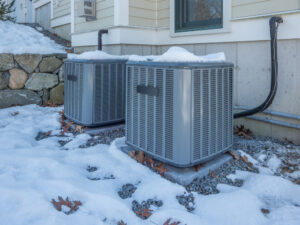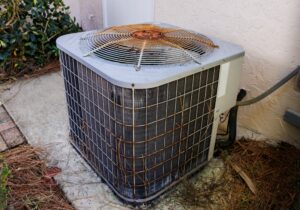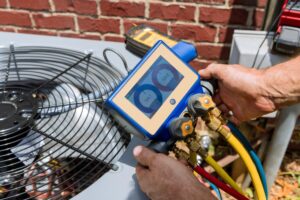As the days grow shorter and the temperatures plummet, our minds naturally turn to cozy evenings sipping hot cocoa with the family and going holiday shopping with friends. Very few of us give any thought to our furnaces, even though they deserve our attention long before the cold settles in. If these units aren’t properly prepared for the upcoming chill, we could be in for some very miserable nights. Fortunately, this guide is here to walk you through some essential steps for getting your furnace ready for winter so you can prevent the chances of a breakdown.
Replace or Clean Your Furnace Filters Regularly
One of the simplest ways to keep your furnace in peak condition is by replacing or cleaning the filters regularly. Furnace filters trap dust, dirt, and other airborne particles so that your home’s air remains clean and your system operates smoothly. Over time, however, these filters will become clogged, and your furnace will have to work harder to push air throughout your home. To prevent a decrease in performance (and an increase in strain that leads to a higher likelihood of a breakdown), replace the filters routinely.
Most HVAC professionals recommend changing air filters every 1-3 months during peak usage. If you have pets, allergies, or a larger household, you may need to replace them more frequently. Not only will clean filters help to prevent furnace breakdowns, but they’ll also improve your indoor air quality — a win-win!
Inspect the Thermostat
The thermostat is the control center for your home’s heating system, so it’s important to make sure this device is working properly as you get your furnace ready for winter. A malfunctioning thermostat can lead to erratic heating, causing your furnace to cycle on and off or even fail to turn on when you need it.
Check the thermostat’s settings, make sure the batteries are fresh if it’s battery-powered, and test it by setting the temperature a few degrees higher to see if the furnace kicks on. If you notice any issues or if the thermostat seems to struggle to maintain the set temperature, it may be time to replace it or have it inspected by a professional thermostat technician.
Clean the Area Around the Furnace
Your furnace needs adequate airflow to operate efficiently, and clutter around the unit can restrict this. Make sure the area around your heater is clean and free of any items that could restrict airflow or create a fire hazard. Also, be aware that dust, dirt, and even pet hair can build up around the furnace, potentially clogging the air intake and causing the system to work harder than it needs to.
Take a few minutes to vacuum or sweep around the furnace and check for any signs of buildup. This simple step can go a long way in preventing furnace breakdowns by helping it operate with less strain.
Test Your Carbon Monoxide Detectors
Furnaces, especially gas-powered ones, can emit CO if there’s a malfunction or improper ventilation. Since carbon monoxide is a colorless, odorless gas that can be extremely dangerous, even fatal, it’s important to upgrade or reset your CO detectors from time to time.
Seal Drafts and Insulate Your Home
Drafts and poor insulation allow cold air to seep into your home, making it harder for your furnace to maintain a consistent temperature. This constant strain can lead to faster wear and tear, increasing the likelihood of a breakdown.
Take some time to check for drafts around windows and doors, and use weatherstripping or caulk as needed to seal them. Proper insulation in your attic and walls also helps retain heat, allowing your furnace to work less and reduce your energy costs, so consider installing new insulation here.
Schedule a Furnace Maintenance Appointment
One of the best ways to prevent furnace breakdowns is to schedule a professional furnace maintenance check-up with a trusted HVAC provider like H.J. Faust, Inc. Early in the season, before the temperatures drop too low, is the ideal time for this essential service. During a maintenance visit, a technician will thoroughly inspect your furnace, clean its internal components, and ensure that everything is operating efficiently. They’ll catch any minor issues with everything from heat exchangers and ignition switches to belts and motors to reduce the chances of a sudden breakdown in the middle of winter.
Consider Upgrading Your Furnace
If your furnace is more than 15 years old, it might be time to consider a replacement. Older furnaces not only have to work harder to keep your home warm, but they’re also more prone to breakdowns. Modern furnaces are much more energy-efficient, meaning they can keep your home warm while saving you money on utility bills. An HVAC professional can help you determine whether it’s time to replace your unit and recommend the best options based on your home’s needs.
Keep Your Furnace Running All Winter Long
By following these simple yet effective tips, you can prevent furnace breakdowns and ensure your home stays warm and inviting throughout the season. Remember, professional furnace maintenance is key to a trouble-free winter, so don’t wait until something goes wrong. Contact the experts at H.J. Faust today. We will answer your call right away for furnace repair and maintenance services.
Frequently Asked Questions
Can a furnace freeze up in the winter?
While furnaces themselves don’t freeze up, certain components can be affected by freezing temperatures, particularly if the unit is located in an unheated space. For instance, pipes in the furnace’s condensate system can freeze, causing water to back up and potentially shut down the furnace. Keeping your furnace in a well-insulated area can help prevent this issue.
Why does my furnace keep turning on and off frequently?
This issue, known as short cycling, can result from a clogged filter, a malfunctioning thermostat, or an oversized furnace. Since short cycling can increase wear and tear on your furnace, it’s a good idea to have it checked out by a professional.
What temperature should I set my thermostat at to keep my furnace efficient in the winter?
For enhanced efficiency, set your thermostat to around 68°F when you’re at home and awake, and lower it while you’re asleep or away. Using a programmable or smart thermostat can help automate these changes, ensuring comfort while helping reduce energy bills.
Why does my furnace make loud noises, like banging or rattling?
Loud noises could indicate several issues. For example, banging sounds might come from delayed ignition, while rattling can signal loose parts. If you hear unusual sounds, it’s best to call a furnace repair company to inspect your system before a minor issue becomes a major replacement.



